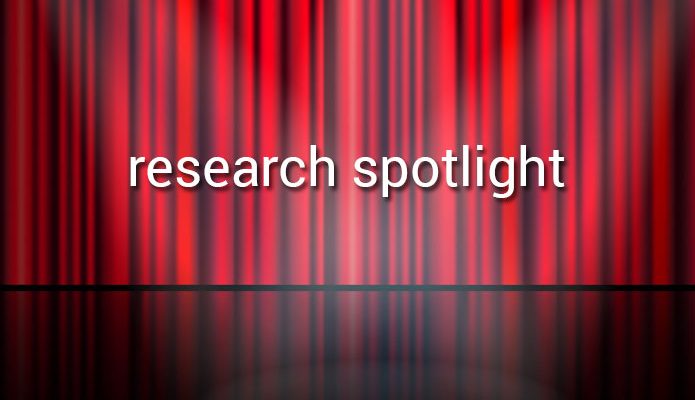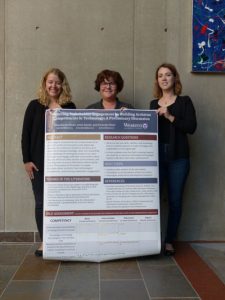
Understanding Archivists’ Technological Competencies: A Pop Up Research Experience
The Archives and Research Collections Centre (ARCC) is part of Western Libraries. Archivists and librarians at Western University have responsibilities to undertake and disseminate research, in addition to professional practice and service responsibilities.

Archives are in transition, and three of Western University’s archivists are exploring the technological competencies needed by archivists to drive the profession forward and respond to stakeholders’ needs.
Anne Daniel, Amanda Jamieson, and Amanda Oliver have collaborated as researchers on a number of projects related to understanding the professional identities and behaviours of archivists. In their recent research on methods of answering reference questions, they found that archivists generally used a low-technology approach. This prompted further questions – in an increasingly digital environment, do archivists have the necessary technological competencies? What professional development opportunities are there for archivists to increase their skills?
With hopes of promoting discussion on this topic within the archives community, they submitted a proposal for a Pop-Up Session at the Society of American Archivists conference, ARCHIVES 2017, in Portland, Oregon. Pop-Up sessions focus on ideas and content that have “popped up” since initial session proposals were due many months earlier. Their session “The Elephant in the Room: Archivists’ Technological Competencies” was voted by conference registrants as one of the four successful Pop-Ups to be presented at the July conference, out of 27 proposals. Clearly, the topic resonated. However, the ‘pop-up’ nature meant that the trio learned in early June that they would be presenting in just 7 weeks!
Anne, Amanda, and Amanda set up a plan for putting together the 75-minute Pop-Up Session as well as their related poster: “Fostering Stakeholder Engagement by Building Archivist Competencies in Technology: A Preliminary Discussion.” They divided the work based on their individual experiences and skills, and met at least weekly. When in their offices, the three archivists are within shouting distance of each other, and they visited each other’s offices frequently during the weeks leading up to the conference. Anne, Amanda, and Amanda are grateful to Kim McPhee, Teaching and Learning Librarian at Western, who provided support in designing the structure of the session and integrating active learning components.
As a way to frame the session, the three archivists wanted to understand the current technological competencies needed in archives. Job descriptions would provide useful information, but can be difficult to obtain (and sometimes don’t exist). Instead, they used job postings as a proxy for job descriptions, and appreciated that the Society of American Archivists was able to quickly provide them with access to six months of job postings. They performed a content analysis on the 130 postings to identify themes in technology-related competencies, including information technology (general), digital materials, digital materials management, metadata, languages, databases and content management systems, reformatting, and websites. They found a wide range in how technology needs were described in the postings, and no standards for presenting technological competencies. The most commonly found competencies were specific or general knowledge of databases/CMS, digitization, and digital preservation.
About 40 archivists attended their Pop-Up Session. The three presenters talked about defining competencies and existing literature about technological competencies, and provided results from their own content analysis. They also provided three directed opportunities for attendees to reflect individually, discuss with a partner, and then share with the whole group (aka think, pair, share). There was lively discussion and many questions and ideas shared. Similarly, their interactive poster (presented earlier that week) garnered lots of discussion, and served as an informal way for the three researchers to learn how archivists assess their own technological competencies. Anne, Amanda, and Amanda see a number of ways they could continue with their research on this topic, including availability of professional development and education for archivists and the merits of generalist vs specialist archivist roles.
You can find the poster and presentation hosted at Selected Works of Anne Daniel, as well as previous works by Anne, Amanda, and Amanda on archivists’ identity and archivists’ reference practices.
Lise Doucette is Assessment Librarian at Western University.


